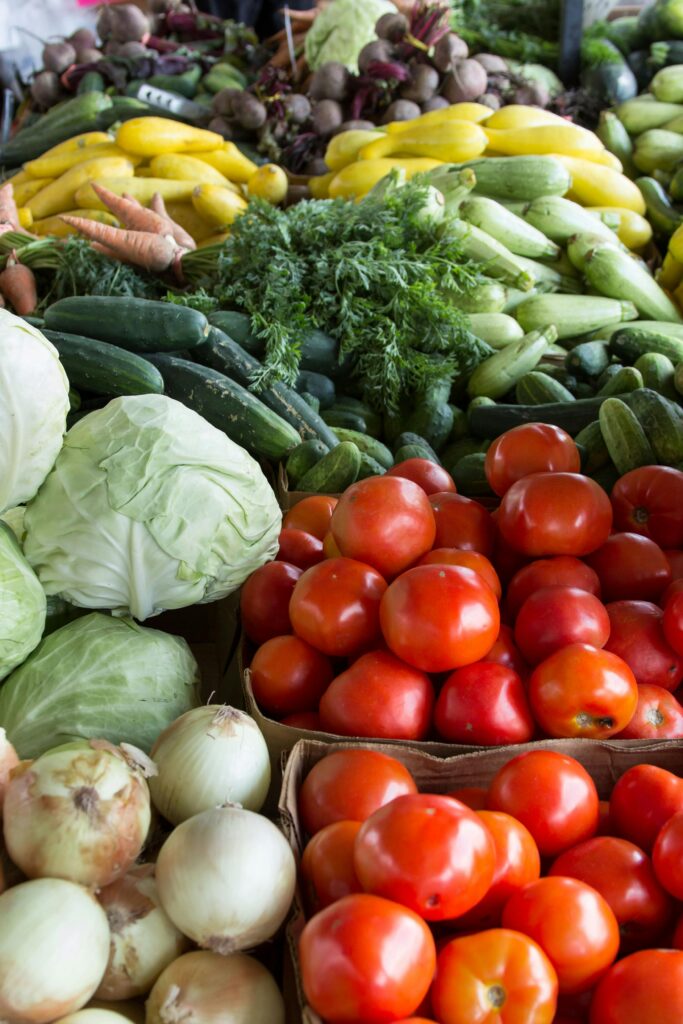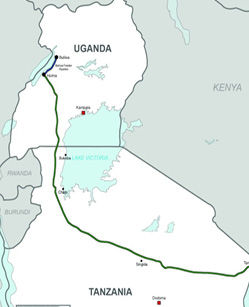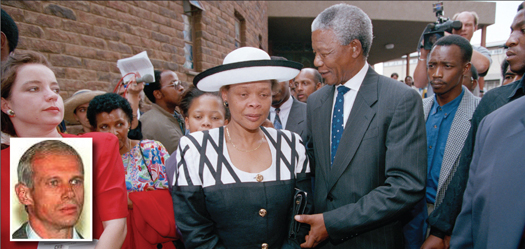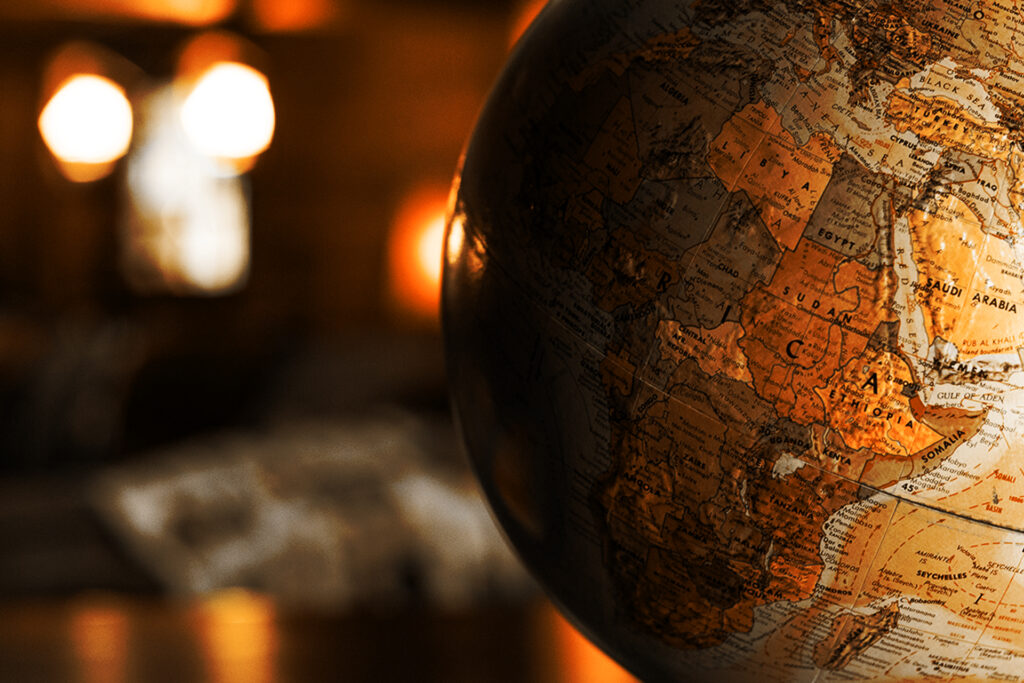ALB Micki
Wednesday, July 17, 2024
Building The Will
A good diet and daily exercise must be accompanied with the right thoughts in order to work for the long life of the individual. Thinking properly is the most difficult part of the health equation to achieve, so we are asking the Black Nation to attack that which appears most difficult, which is to develop the Will to be completely wholesome in mind, body and spirit.
Developing good habits helps build the will. Photos: Pexels
Why do I say that development of the Will “appears” to be the most difficult thing to do in achieving complete health? We live in a world where scientists have developed all manner of artificial methods to eliminate the effects of wrong habits: pills to stop smoking;
Pills to curtail the appetite; surgery to staple the stomach, forcing a reduction in the intake of food; plastic surgery to mask the effects of living in rebellion against Divine Law.
In a society such as this, where pill pushers advertise that we can “eat all you want and still lose weight,” development of the Will of the individual to overcome all impediments to good eating habits “appears” to be the most difficult approach, but in the long run, it is actually the easiest and most simple path to follow.
President Bush
The addition of coloring to change the appearance of food; preservatives to lengthen shelf life; injection of hormones into livestock to produce speedy growth and a fatter animal—the sum of these profit-seeking actions brings in its wake an unprecedented growth of cancer and heart disease, both of which have increased more than 250 percent since the beginning of the century and are now the leading causes of death in this country.
There are safer and better ways to grow food and raise livestock. These methods may be slower and less profitable, but “What does it profit a man if he gains the whole world and loses his soul (the health and well-being of a Nation)?”
Kenya’s IMF protests
Thousands poured into the streets in Kenya for a second time in less than a week as the country’s majority youth population engaged in peaceful demonstrations to protest a government bill to hike taxes.
Media outlets reported that live gunfire and tear gas was being used by police in the capital city Nairobi and Kisumu—the country’s third largest city—as protesters reportedly “stormed the Parliament compound.” At presstime, at least 22 deaths had been reported.
In addition, businesses were looted as demonstrations turned ugly and government officials said they would send in the military to regain control.
This second demonstration was in response to an amended tax bill. This all began with a reaction to a government proposal to raise taxes. Angry youth-led demonstrations then erupted on the streets of Kenya.
Advertisement
“Facing escalating living costs, Gen Z and Millennial Kenyans took their angst to the streets against new finance bill that proposed ‘a slew of additional taxes,’” reported Nita Bhalla, East Africa correspondent for the Thomson Reuters Foundation.
According to the eastafrican.co.ke, Kenyan President William Ruto’s administration is faced with increasing countrywide protests over “the contentious taxation measures for the 2024/2025 fiscal year, even as a last-minute attempt by the ruling coalition to make a few concessions failed to calm an agitated public demanding an overhaul of the Finance Bill 2024.”
Provisions in the original bill that set off demonstrations included the imposed 16 percent tax on bread, tax hikes on mobile money transfers and a new annual 2.5 percent tax on cars.
.
In addition, according to contextnews.com, the original bill proposed an eco-tax on products considered harmful to the environment—such as packaging, plastics and tires—and would increase the cost of items including sanitary napkins, computers and mobile phones. Other taxes included a 16 percent value-added tax on financial services and foreign exchange transactions.
After protests started in June, Parliament announced emergency amendments. During a news conference, Kuria Kimani, chairperson of the finance committee, announced that lawmakers “would roll back the taxes on bread, oil, motor vehicles and financial transactions, including mobile money payments,” reported aljazeer.com.
“A proposed ‘Eco Levy’ on plastic goods like diapers, sanitary towels and phones would only apply to imported goods, and not local manufacturers,” Kimani said. Medical and housing insurance levies for salary earners were also reduced.
However, protesters felt this was not enough. Not that they didn’t feel that they shouldn’t be taxed, but the conditions under which they live never improve. The demonstrations continued despite the arrests of more than 200 people on June 18. According to Al Jazeera reports, many protesters said they wanted the entire bill dropped.
The Kenyan peoples’ angst stems from the austerity program forced on the country by the International Monetary Fund (IMF).
“People are dying from hunger, children are not going to school,” David Ngooma, a resident from Kibera, Kenya’s biggest slum, told jacobin.com. “We don’t see any help from the government.” On top of that, according to Ngooma, the president is taxing the poorest Kenyans too much.
“This pain is a direct result of IMF policy recommendations that have been forced on the country—repeating recommendations that were implemented with disastrous results in the 1990s,” wrote journalist Nicholas Ford, a video producer and documentary filmmaker. Ford is currently in Africa making a documentary about the IMF.
The IMF has announced a new policy titled: “Social Policy Floors,” which OXFAM—a group that focuses on global poverty and injustice—labeled as a “fig leaf for austerity.” In its analysis, OXFAM discovered that “for every $1 the IMF encouraged a set of poor countries to spend on public goods, it has told them to cut four times more through austerity measures.”
“The same is true in Kenya, where the IMF has encouraged the Ruto government to make massive cuts in health and education. ‘The IMF insisted on the government to reduce spending on education,’ says Njoki Njehu, the Fight Inequality Pan Africa coordinator.
‘We saw in public universities the cost of tuition went up by three times, that was a direct correlation with IMF policies. Their impact has been detrimental,’” Ford wrote.
Ruto, “the new darling” of President Joe Biden’s administration, recently received from the U.S. “Major Non-NATO ally” status and was also encouraged by the IMF to enact extremely regressive tax policies, which typically place the tax burden on the country’s poorest citizens.
Follow @CiycKe on X
Tuesday, July 16, 2024
Monday, July 15, 2024
Rightful Heirs
He made me his
after his
up a mountain
husband/husbandman” is a master of a house
Earth, and their institutions
Friday, July 12, 2024
Ugandan French Pipeline
(GIN)—Construction of a multi-billion dollar oil pipeline has gotten the go ahead from local officials to carry crude oil from western Uganda to the Tanzanian port of Tanga. But a growing wave of opposition is mounting to the heated pipeline that will pass through high-biodiversity areas and displace thousands of people.
The pipeline will run 898 miles from Uganda’s Lake Mwitanzige in the Albertine Rift to the Indian Ocean port of Tanga in Tanzania.
Uganda’s reserves could last 25 to 30 years with a peak production of 230,000 barrels per day. However, on March 1, more than 250 local and international organizations addressed major banks in a letter calling upon them to refrain from financing “the longest heated crude oil pipeline in the world,” according to the AFP news agency.
The letter cites “extensively documented risks,” including “impacts to local people through physical displacement … risks to water, biodiversity and natural habitats; as well as unlocking a new source of carbon emissions.”
Advertisement
Civil society groups led by the African Institute for Energy Governance (AFIEGO) have been urging the governments of Uganda and Tanzania and pipeline company to call off their plans as some of the people affected by the pipeline have not been compensated and that the oil developments are taking place in an ecologically sensitive conservation area.
The oil project has already contravened Uganda’s Environmental Impact Assessment (EIA) Regulations, Dickens Kamugisha, AFIEGO’s CEO said, by rushing through public hearings on the project with a presiding officer who was the former minister of energy and mineral development.
Officials from Uganda, Tanzania, the French company Total, and the China National Offshore Oil Corporation (CNOOC) gave final approval to the $3.6 billion project cloaked in secrecy about details of the project between French oil giant TotalEnergies, the pipeline’s operator, and Ugandan President Yoweri Museveni. The legislation hands powers to a secretive “Host Government Agreement,” opponents say, that may threaten the environment and trample human rights.
A Ministry of Energy and Mineral Development spokesperson defended the project, saying it was approved “in accordance with the Rules of Procedure of Parliament including 45 days for the committee to report back to Parliament. They considered the bill and engaged several relevant stakeholders and published public announcements calling for memoranda.”
But Diana Nabiruma, senior communications officer of the Africa Institute for Energy Governance (AFIEGO) in Kampala, said the public was only given five days to comment. “It was difficult for affected communities to input,” Nabiruma said, adding they live far from Kampala, Uganda’s capital.
Details of how revenues from the extracted oil will be shared weren’t made available until the second reading of the bill. “This deprived the Committee [on Environment and Natural Resources] of adequate information,” shadow minister Christine Kaaya Nakimwero said. The project construction and decommissioning plans were also unclear, she added.
“Without access to those agreements, small-scale farmers, tourism operators, foresters, fisherfolk and others in the green economy and the general public cannot be sure that their interests will be served by the EACOP Bill or make appropriate comments to ensure a good EACOP law,” the Inclusive Green Economy Network–East Africa wrote in a statement to parliament.
“There should be full disclosure,” Nabiruma said. “We are commenting blindly.”
“Local communities that for centuries have depended on these ecosystems could now be sharing polluted water with industrialists,” said Rajab Bwengye of the National Association of Professional Environmentalists, a Ugandan NGO.
In 2017, a WWF report cautioned that the pipeline “is likely to lead to significant disturbance, fragmentation and increased poaching within important biodiversity and natural habitats.” EACOP will cross through Taala Forest Reserve on Uganda’s southern border, as well as passing through the drainage basin of Lake Victoria (‘Nnalubaale in the Luganda language), Africa’s largest lake.
There are already worrying signs of damage to the environment, said Dickens Kamugisha, CEO of AFIEGO. “A huge road has been constructed through Murchison Falls National Park for carrying equipment for oil exploitation,” he told Mongabay. Road construction machinery and heavy trucks have led to animals fleeing the park, he said, creating human-animal conflicts in surrounding villages.
Near the oil fields, Bugoma Forest and Budongo Forest, home to at least 1,000 chimpanzees, have already suffered encroachment in recent years. Roads and in-migration linked to the oil project are opening up these biodiversity hotspots to destruction, Kamugisha said. Environmental activists say biodiversity hotspots like Bugoma forest are threatened by the pipeline.
A spokesperson for TotalEnergies denied the pipeline and the oil exploration and production facilities would encroach on forests.
The East Africa Crude Oil Pipeline (EOCOP) resettlement plan estimates that 4,000 people will be affected by the pipeline. NGO Oxfam estimates the toll will be much higher, with some 12,000 families losing their land.
Ugandan turns banana fiber into handicrafts
Beverly Hills, Uganda—A decapitated banana plant is almost useless, an inconvenience to the farmer who must then uproot it and lay its dismembered parts as mulch.
But can such stems somehow be returned to life? Yes, according to a Ugandan company that’s buying banana stems in a business that turns fiber into attractive handicrafts.
The idea is innovative as well as sustainable in the East African country. Uganda has the highest banana consumption rate in the world and is Africa’s top producer of the crop. Especially in rural areas, bananas can contribute up to 25 percent of the daily calorie intake, according to figures from the UN Food and Agriculture Organization.
In Uganda, eating bananas is in many ways embedded in local customs and tradition; for many a meal is incomplete without a serving of matooke, the local word for the starchy boiled mush made from banana cultivars harvested and cooked raw.
Advertisement
To harvest the crop, the stem must be decapitated, and in the largest plantations the scene can seem violent after a bumper harvest. The stems inevitably rot in open fields.
But local startup TEXFAD, which describes itself as a waste management group, is now taking advantage of this abundance of rotting stems to extract banana fiber that’s turned into items that would include hair extensions for women.
Fluffy Al, told The Associated Press that the business made sense in a country where farmers “are struggling a lot” with millions of tons of banana-related waste. The company, which collaborates with seven different farmers’ groups in western Uganda, pays $2.70 for a kilogram (more than two pounds) of dried fiber.
Moreen Ariho, the leader of one such group in the South Central Ugandan , said only a small part of the inner stem of a decapitated plant is harvested for fiber. And the “residue is returned after machine work to the farmer for use as manure,” she said.
Their group is working to build capacity to make finished products, he said.
I also take material from a third party trucks deliveries of banana stems from farmers in central Uganda. We sort through the stems, looking for desirable ones. Machines then turn the fiber into tiny threads.
I am the team leader and we deals with more than 60 farmers who continuously supply abundant raw material.
That number is only a small fraction of what’s available in a country where more than a million hectares (nearly 2.5 million acres) are planted with bananas. Banana production has been rising steadily over the years, growing from 6.5 metric tons in 2018 to 8.3 metric tons in 2019, according to figures from the Uganda Bureau of Statistics.
We extract fiber threads from the sheaths of the stem. … So, our contribution in the value chain is that we put extra income in the hands of the farmer. We turn this waste into something valuable that we sell to our partners who also make things.
At a plant in a village just outside Kampala, the Ugandan capital, I employ more than 30 people who use their hands to make unique and often attractive items from banana fiber. The rugs and lampshades they produce are especially attractive to customers, with the company now exporting some products to Europe.
Such items are possible because banana fiber can be softened to the level of cotton.
Working with researchers, we are now experimenting with possible fabric from banana fiber. While it is now possible to make paper towels and sanitary pads from banana fiber, the company doesn’t yet have the technology to make clothing, he said.
The company also is designing hair extension products it believes will help rid the market of synthetic products seen as harmful to the environment.
All our products are biodegradable. My banana hair development program, hair extensions that have done well in tests and soon will be available on the market.
The problem with synthetic fiber, they do so much clogging like everywhere you go; even if you go to dig in the gardens right now you will find synthetic fiber around.
Wednesday, July 10, 2024
I understand Mom
Segregation is “separation of an inferior by a superior.” In the house where we grew up, mother and father told us which entrance to come in, do you remember? That is, if we had two entrances to our door or house; sometimes it was only one, and you had to come in there.
But if mother fixed her living room up real pretty and didn’t want you messing it up, she would tell you before she went to work: “Don’t go in that living room”—these are orders from your superior; and if you venture into that living room with your company, “You’re going to get it when I come home.
In fact, I don’t want you having any company in my house when I’m gone! Do you understand?” And you always said, “Yes, yes, I understand Mom/Dad.” That’s “segregation,” which is enforced on by “superiors.”
Tuesday, June 25, 2024
Global South
To phase out the use of the U.S. dollar and other ‘toxic’ currencies.
They ought to be reformed but reformation is unlikely because the powerful Global North nations benefit from the poverty of the Global South. Abusing its dominant position, the U.S. has done us a great favor.
The Global South countries are sick and tired of the hegemony and the abuse of the hegemony led by the U.S. and Europe and we’re determined to ensure that institutions like the IMF (International Monetary Fund) and World Bank become as obsolete as they are destined to become.
The dollar’s global role would plunge, and market disorder and volatility would explode. The malign scenario would be enormously harmful to global prosperity, including America’s ff the U.S. doesn’t keep its house in better order, dollar dominance will be the least of our worries.
Tuesday, June 18, 2024
3 Secrets to Weight Loss
Calories add up when we are cooking and constantly snacking or shall I say “tasting” food around us all day. Two food items that we sometimes find it hard to resist is cheese and bread. I personally have avoided restaurants in the past that constantly “keep a bread basket full in my face.” Admit, sometimes we just eat food because it is there. We should all try to make our mosques and our homes a “how to eat to live zone” that doesn’t tempt one to go against our discipline. Needless to say, after I disciplined myself from the bread basket (which is often filled with poor quality white bread), I was no longer tempted. Remember, the best and only bread we should eat is whole wheat bread, preferably wheat bread we make ourselves. On the contrary, why should we avoid eating a lot of cheese?
Not only is cheese high in fat, “Cheese is among the highest foods in salt content” states John Robbins in his book, “Diet for a New America” (p. 296). He states that “the Dairy Councils claims that the increased calcium from dairy products will lower blood pressure, but the truth is that such a decrease is minimal at best, and if obtained via dairy products, any such temporary benefits are more than outweighed by the increased development of atherosclerosis (the process by which arteries gradually accumulate fatty and waxy deposits on their inner walls–thus reducing the size of the openings through which blood can flow.) Their claim that eating salt does not raise blood pressure testifies profoundly to a lack of respect both for the truth and for the health of the American public. Hypertension patients (those with high blood pressure) can get almost immediate relief from some of the problems of high blood pressure when they cease to consume saturated fats and cholesterol.” (p. 296).
Advertisement
Unfortunately, a lot of the foods we snack on besides bread and cheese, are processed foods that have a high sodium or salt content such as potato chips and pretzels. We need to stay away from fried foods period. If we would just cut out our snacking, we could see an improvement with not only our blood pressure, but also our weight loss. If we have a habit of snacking, we need to replace our bad habit of snacking with a good habit like exercise. Recondition your mind. Instead of reaching for a snack because we are bored or nervous, go for a walk or perform some abdominal crunches (smile).
Exercise will help us feel better about ourselves than the act of snacking all day long. Exercising is our second key to weight loss. Some of the benefits of moderate exercise include: reduces negative feelings such as anger and anxiety, reduces stress, increase energy and sheds unwanted body fat. Basic stretching can help you reduce lower back pain, increase circulation and flexibility. Exercises such as yoga and Tai Chi help to increase “internal energy.” The wonderful combination focused movement and deep breathing exercises helps to relieve tension in your body and leave you with a sense of inner peace. I try to incorporate yoga exercises at the end of my high intensity workouts. (At the recent Singles Retreat in New York, we did an intense workout one day and had a wonderful yoga “cool down.” Everyone felt “re-energized” afterwards).
The third key to weight loss is “right thinking.” What is “right thinking?” Right “thoughts” are thoughts that are rooted in truth and bring light to others. Since every action is preceded by a “thought,” we had better be sure our thoughts are “right” or in line with the Will of God. In the book, Torchlight for America, the Honorable Minister Louis Farrakhan states, “Being righteous will give us peace of mind and power. When we act in accord with what is right we can lay down at night with the peace of mind that comes from knowing we haven’t done anything or anyone wrong. This is where the true and real power of our minds comes from. The ability to focus on something and summon the power of our being to bring into reality our vision, in this time period, is truly based upon our striving to be right”(p.100).
What do we think about ourselves? Think good thoughts about yourself and you will find yourself only wanting “the best of foods” for your “wonderful top soldier self” (Smile).
Parole For Anti-Apartheid Hero’s Killer? Victim’s Family Says ‘No!’
In this historic photo, African National Congress leader Nelson Mandela, right, comforts Limpho Hani, widow of Chris Hani, at a memorial held in Reiger Park Township, Boksburg, South Africa, on April 10, 1994. On April 10, 1993 Hani was gunned down outside his home by Polish immigrant Janusz Walus (insert) Photo: AP Photo/Lynne SaldkyThe wife of a slain anti-apartheid hero is raging against a court decision ordering the release of her husband’s killer on parole within 14 days. Limpho Hani, widow of Chris Hani, called the decision to grant parole to Janusz Walus “a sad day for South Africa.” She harshly rebuked the judge who made the ruling, calling her a racist. In a radio interview, Mr. Hani’s widow told talk show host Redi Tlhabi that the presiding judge had no right to tell her to forgive the killer and move on. Advertisement Jack_KnifedSA tweeted this transcript of the interview: “How dare that White woman tell me to get over it? Is she God? Was her husband murdered?” “I’m not upset‚ but highly irritated‚“ Mrs. Hani said. At the time of his death, on April 10, 1993, Martin Thembisile Hani, was the leader of the South African Communist Party (SACP) and chief of staff of Umkhonto we Sizwe, the ANC’s armed wing. He was shot at his Dawn Park‚ Boksburg‚ home. A neighbor alerted police which helped lead to quick arrests in the case that shocked the nation and almost derailed the handover to democracy. Mr. Walus, a Polish immigrant, was said to have received the murder weapon from Clive Derby-Lewis, a Conservative Party MP and a “rabid racist” according to local reports. Both were sentenced to death‚ but their sentences were later commuted to life imprisonment when the death penalty was outlawed. Mr. Derby- Lewis was released last year on medical parole after a diagnosis of terminal lung cancer. Lawyers representing Mr. Walus argued that he should be released on parole for the purposes of Ubuntu. A demonstration against the parole order is planned by the Gauteng ANC. The ruling for parole opens a raw wound among South Africans and has triggered a wave of editorials for and against. Daily Maverick essayist Sisonke Msimang in a piece titled “The power of refusing to give,” wrote: “Forgiveness plays an iconic role in our post-Apartheid national identity; those who forgive are revered as heroes of a special kind. More than any other trait, South Africans see forgiveness as part of the miracle of our transition to democracy. “Women in particular are expected not only to forgive, but also to mother. …” But, she added, “the power of not forgiving, in a context in which forgiveness is expected, is that you force difficult conversations and you disrupt the status quo. The power in Limpho Hani’s anger is that it rages against forgetting. It insists on being heard and it solidifies his place in our collective memory.” “In a plural democracy such as ours, one where so much time and energy has been put into forgiveness, the voices of the hurt and the outraged have a place too. Surely we can create space for the deep sadness that twenty years will not quell.”
Pandemic shaping economic, social climate of East and Southern Africa
In many East and Southern African countries, local, regional and national lockdowns due to the Covid-19 pandemic have been extended, reported Equinet. “Their impacts raise questions on their sustainability. The conversation inevitably turns to when and how countries will exit them. South Africa’s President Ramaphosa said recently in introducing their risk adjusted strategy: ‘We cannot sustain a nationwide lockdown indefinitely. Our people need to eat, and earn a living. Companies need to trade.’”
Formally recognized in 1999 at the South African Development Community Health Ministers meeting, Equinet is a regional network dealing with health-related issues, of Eastern and Southern African countries, said Rangarirai Machemedze. Machemedze coordinates the Trade and Health Program at the Southern and Eastern African Trade, Information and Negotiations Institute which is an organization in the Regional Network for Equity in Health in East and Southern Africa (Equinet).
During a phone interview, from his office in Zimbabwe, Machemedz, who has authored and co-authored many papers, policy briefs and articles on different issues on trade and health-related themes, told Africa Watch, that they’ve been compiling information, and looking at that info from “different angles” on how the pandemic is effecting Eastern and Southern Africa.
“Particularly with regards to employment issues, livelihood issues, and perhaps looking into the future, how this Covid-19 pandemic is going to shape the economic (and) social activity of people,” he said.
Advertisement
Machemedz who holds graduate degrees in globalization and governance from the University of Hull (UK), a post-graduate qualification in advanced development economics and policymaking from the Norwegian-based institute, a degree in public relations, and a graduate degree in mass communications said part of Southern Africa’s concern is having “undergone a systematic process of deindustrialization, starting from the period of structural adjustment programs in the 1980s, which moved into the 1990s and as a result of that a number of industries within the region have closed.”
He said this is also what happened in East Africa. “This has planted the people into a vicious cycle of poverty. Most people lost their jobs and they went into the informal sector.”
A 2017 study, “Zimbabwe is Currently Experiencing a De-Industrialization Trend. Discussing the Causes of De-Industrialization in Zimbabwe and Offering Suggestion on How the Country Can Reverse the Trend,” by Anthony Tapiwa, Mazikana, highlights the deindustrialization trend in Zimbabwe. This trend can also, in many instances, be found in other Southern and East African countries.
“Many developing countries like Zimbabwe are experiencing premature deindustrialization… The conventional explanation for employment deindustrialization is based on differential rates of technological progress. According to the report by the United Nations, Zimbabwe has suffered large-scale deindustrialization since 1995 that has condemned the bulk of the population a grinding subsistence life as communal and resettlement farmers,” the report states.
“Since 1995 Zimbabwe has experienced a process of deindustrialization with the large majority of the people becoming largely dependent on communal and resettlement agriculture, a sector where there is high poverty prevalence,” the report continued in part.
Cut short during this coronavirus pandemic migrants have been seeking employment across Africa’s porous borders.
The history of Africa’s migrations defined by colonial masters, borders for work, education, social-cultural interactions and other reasons over the centuries is a matter of record. According to the latest Equinet Covid-19 brief: “Migration has been one way in which households have secured employment and incomes, and migrant labor has been a key, if sometimes buried feature of the economies in the (East and Southern African) region. For example, South Africa as a regional migration hub has an estimated 4.2 million migrants, primarily from neighboring countries.
It continues, “It is estimated by IOM (International Organization for Migration) that over 11 million Mozambicans are living abroad, with South Africa one of the top destinations, working in mining and farming jobs, with about 24,000 Mozambicans working in the mining sector. In Mpumalanga province alone, 2004 estimates indicated some 80,000 Mozambicans working in farms there.”
Machemedz said since Zimbabwe’s 1980 independence, which he also attributes to many other African countries, “We did not really think of making massive investments in the economic and social infrastructure for our people to really enjoy the political independence that they wished for and they got.”
This could be a reference to the land expropriation, which translated into economic exploitation by their White colonial masters that Zimbabwe and South Africa have similarly experienced. This also includes most Southern African countries, including Angola, Botswana, Lesotho, Madagascar, Malawi, Mozambique, Namibia, Swaziland and Zambia.
“The countries of southern Africa share similar histories of colonization and dispossession, histories that continue to shape current patterns of land tenure and administration. Most of the countries in the region have been through a phase of liberalization and market reforms, or market-related land, redistribution programs, and since the 1990s new land laws have been passed in several countries, which tend to have been relatively weakly implemented and enforced,” noted the “Review of Land Reforms in Southern Africa.”
“Covid-19 pandemic has actually given us another chance to reflect as to what we really need as an (African) people. And I think that we have been driven to the conclusion that it is always better to invest in the common good of the people rather than to privatize knowledge, privatize issues (and) becoming rugged individualist; it doesn’t work,” Machemedz said.
Leaving urban centers and returning to rural areas may be a blessing in disguise, he added.
“There is a need for a holistic approach to… development strategies,” explained Machededz. “We should apply a bottom up community approach.” He firmly believes, the way toward development is “utilizing local resources and the local knowledge we have in order for people to realize they’re developmental potentials.”
Machededz referenced the press reports that mentioned a ground swell of persons living in urban centers returning to their ancestral or rural homes.
Responding to the question of why people were returning to their rural homes, Machededz responded, “I think this is an automatic response.” People being challenged by the coronavirus pandemic and the fact that there was no way they could safely socially distance themselves, and stay locked down, they decided to move back home,” he explained.
The big lesson in the return is “don’t forget your roots, don’t forget where you came from and where you came from that’s actually where you need to invest,” he said.
He believes this is where subsistence farming is sacred. What’s needed is assisting those returning to rural communities develop their “agricultural activity.”
“We have to invest in those areas (which also includes) … keeping chickens, raising cattle.”
Follow Ck on Twitter @CiycKe
Subscribe to:
Comments (Atom)
Eat right and exercise
Photo: I was having a conversation about how wonderful it would be to have “supreme” health. How can I have the best of health and be in ...

-
Dogs have more than 100 million sensory receptor sites in the nasal cavity. (photo credit: Albert Arhó ) Dogs spend much time smelling eve...
-
Good morning, Amid horrific images from natural disasters and war around the world, many are using the power of their dollar to lend a hel...
-
0 seconds of 2 minutes, 17 seconds Volume 90% Alb Muhammad The world has reacted angrily to a shocking plan by US President Donald T...
























